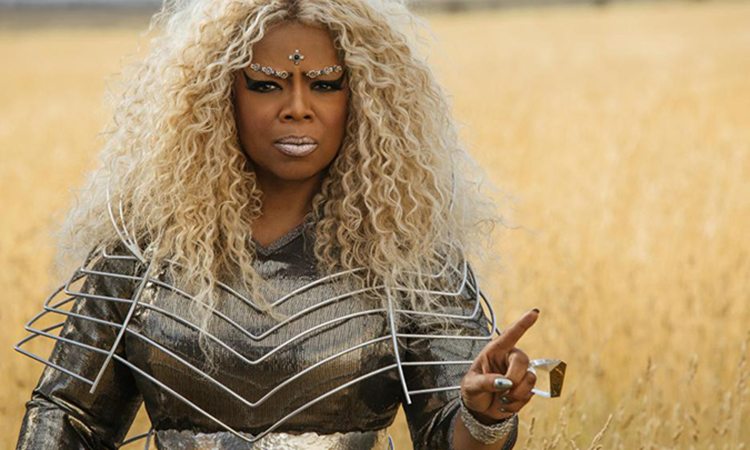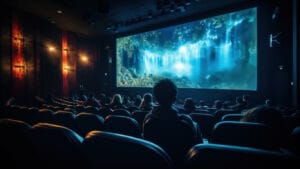Before the critics’ screening of “A Wrinkle in Time” began, director Ava DuVernay aired a brief speech. She explained that the genre of children’s fantasy was a departure for her (indeed it is: her last two films were the politically charged “Selma” and “13th”), and she asked that we try to put ourselves in the mindset of a child before watching the film. DuVernay meant well, but her request turned out to be an unintentional warning—adult minds are keener on noticing flaws.
It feels spiteful to criticize a movie with noble intentions, but “A Wrinkle in Time” doesn’t invite praise. Director DuVernay knows her way around visual storytelling and screenwriter Jennifer Lee is no stranger to authoring kids’ entertainment, but this movie shoves both their penchants to the forefront in full force. It’s constantly showing and telling. For a film so focused on imagination, there’s little room for it amid the incessant stating of the obvious.
Recent kids’ movies have given children due credit and challenged them with important ideas —“Zootopia” and “Paddington 2” come to mind. “A Wrinkle in Time” explains itself too often to strain anyone’s brain, and even the explanations are overdone: flowery language and buzzwords that sound nice but don’t mean much rule the dialogue. The movie reeks of the feeling that its words are better read than heard.
The themes that these nonsensical platitudes dance around are wide-ranging to a fault, marking another regression from the pointed purpose of modern kids’ movies. The story hearkens back to objects of nostalgia that paint good and evil in broad strokes—there’s something archaic about fantasy universes that separate light and dark as if grey didn’t exist. “A Wrinkle in Time” is a world of impossibly mean bullies and evil entities that shout in rumbly voices, where nondescript love is the answer to every problem. It’s vague enough to plug any message of empowerment into.
Thankfully, DuVernay has worthy ideas. She didn’t leave her desire for racial equality behind in her last films, and her casting here reflects that. She makes one couple biracial and their son adopted in order to present a multiethnic quartet of actors, and even bends gender to cast an effeminate Zach Galifianakis (whose line delivery earned the one laugh I emitted among a sea of unfunny jokes.) This egalitarianism bleeds into a message of accepting yourself that’s simple and sweet.
It’d be nice to pin the movie’s faults on the saccharine looseness of the source material and call it a day, but “A Wrinkle in Time” is a visual mess. It’s horrendously edited. Either the camera is always moving or something in the shot is, and the number of cuts chopping up this perpetual motion makes for a nauseating experience. Continuity errors are unavoidable as characters erratically jump from place to place more than the plot does. Given the amount of CGI used, one would expect more than the empty landscapes and unimpressive locales on display—the contemporary songs glossing over them only reinforce how hollow it all seems.
Young actors Storm Reid and Deric McCabe do their part to bring the film to life as the main siblings, but the more gravitas is demanded from them, the more awkward their performances. Their friend Calvin rarely does more than look cool, in acting style and in character. The big names of the cast range from silly to serious (or from Reese Witherspoon to Chris Pine, with Oprah landing in the middle) and mostly serve to remind us that this is a big budget movie—too often it comes off as a direct-to-DVD flop.
★½ (1.5/5)





